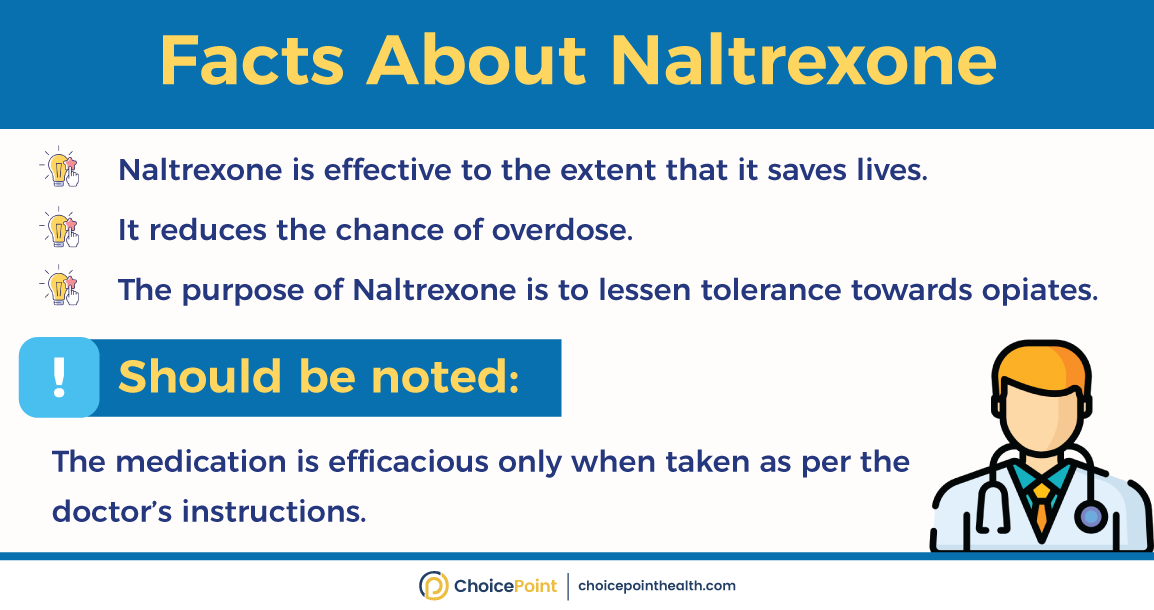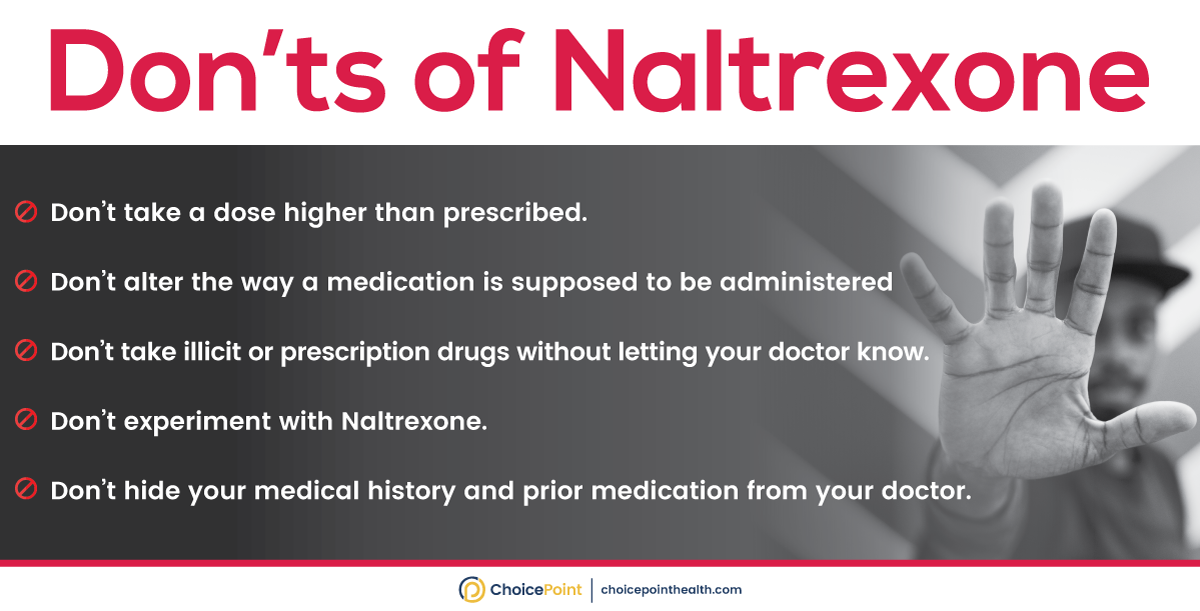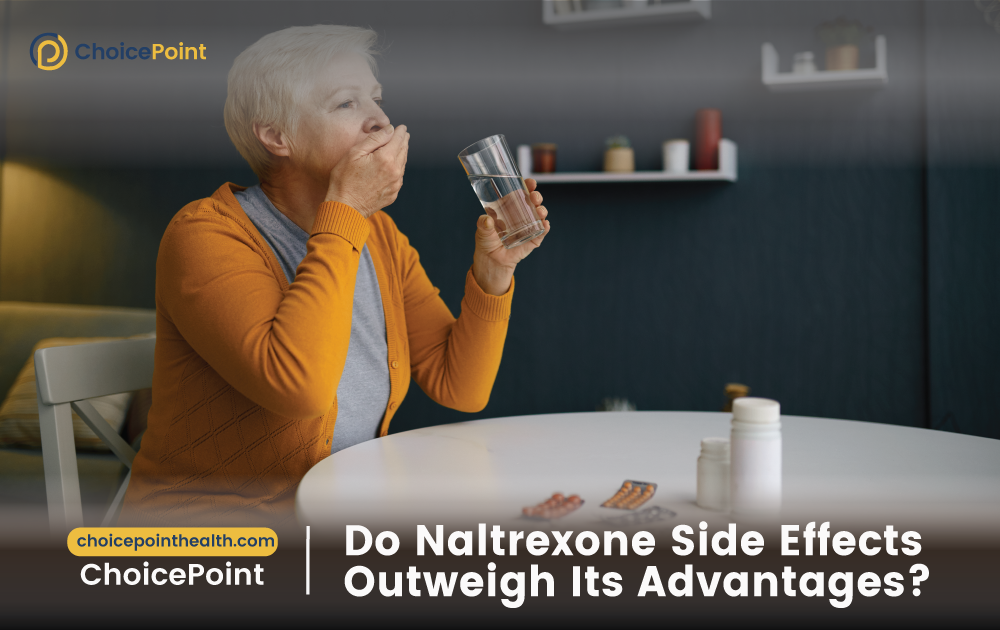Addiction is one of the most significant health concerns facing the US today. Fentanyl, an opiate 50 times more potent than heroin, is becoming the new threat to youth in the US. Timely treatment and medication can reverse the effects of opioids or alcohol. As part of a comprehensive treatment that includes other interventions such as counseling, Naltrexone is prescribed as a medication for alcohol or opioid addiction. In this article, we reveal the advantages and disadvantages of Naltrexone for those wondering if it is the right choice for them.
Table of Contents
How Does Naltrexone Work?
Naltrexone is a medication that addresses opioid use disorder (OUD) and alcohol use disorder (AUD). The FDA showed the all-clear for the injectable form of Naltrexone in 2010. Naltrexone use is intended to be supervised by medical experts. It may be administered in the following ways:
- Intramuscularly
- Sublingually.
It is an opioid antagonist, meaning that by attaching itself to the endorphin receptors, naltrexone works to obstruct the euphoric effects that alcohol and opioids can potentially produce. When dopamine is not released and withdrawal symptoms are lowered, it may help a person eliminate substance and alcohol dependence.
Naltrexone Uses and Advantages
Studies show that Naltrexone is very effective in addressing recurrent cravings. The prescription of this drug is coupled with behavioral interventions to accentuate and complement the effects of naltrexone. We have listed naltrexone’s uses below:
What to Expect When You Take Naltrexone for Alcohol Cravings
Naltrexone is an opioid antagonist that reduces alcohol cravings. The Food and Drug Administration (FDA) approved the drug in 1994 as a treatment for alcoholism. It may be prescribed as a:
- long-acting intramuscular injection
- pill to be administered orally
The following points are to be kept in mind when opting for Naltrexone for alcohol use disorder (AUD):
- Because Naltrexone works by blocking the receptors in the brain, your body needs less alcohol to feel its effects.
- When taken regularly during withdrawal or at the start of treatment for alcoholism, Naltrexone can help prevent relapse. Usually, the drug is prescribed once a patient has undergone medical detox.
- If you are taking Naltrexone for AUD as a pill, the medical practitioner has likely prescribed it for daily use.
- It takes about three weeks of daily use to start working.
- Naltrexone is only prescribed if a patient is 18 or older.
- Once a person gives up on alcohol, Naltrexone can reduce withdrawal effects, thus helping to maintain long-term sobriety.

What Is Naltrexone?
Working of Naltrexone for Opioid Use Disorder
Naltrexone, a drug formulated to treat AUD, is a very effective medication for opioid use disorder. Naltrexone is one of the three medications the FDA has approved for OUD treatment and is deemed effective and lifesaving. Staying on OUD medication for a longer period is linked to better results. The endogenous opioid system’s mu-opioid receptor is the focus of Naltrexone’s actions.
- For OUD, Naltrexone can be administered as a long-acting injectable. This way, the drug can be administered once a month.
- Naltrexone for OUD can be implemented after a Risk Evaluation and Mitigation Strategy (REMS) has been executed, which is essential for the injection’s safety.
- Once detoxed completely, treatment through Naltrexone can be implemented. At least seven opioid-free days are required before naltrexone can be given orally, and 14 opioid-free days are required before it can be administered intramuscularly.
- Taking alcohol or drugs while on Naltrexone is not recommended; it can be dangerous because other prescription drugs can interact with Naltrexone. Therefore, you must let your doctor know about your other medications.
Low-dose Naltrexone side effects are very low, so it poses less risk when prescribed to patients. It can also be used for the following purposes:
- Low-dose Naltrexone is effective in the treatment of fibromyalgia. It can manage pain and offer little to no side effects.
- Likewise, low-dose Naltrexone can be used for diseases such as multiple sclerosis and inflammatory bowel disease (IBD).
Risk of Opioid Overdose with Naltrexone
When it comes to Naltrexone, one of the side effects is that it makes you more sensitive towards the opioids you used to take in the past. So, it can urge opioid overdose. This is mostly done once a person accidentally consumes a higher level of naltrexone to combat the effects of this medication. It is taking other opioids, whether prescription or illicit, with Naltrexone may result in an overdose. In addition, if a patient has received an extended-release injection of Naltrexone, its effects are bound to wear off. Under such circumstances, if a person goes back to taking the same amount of opioids they did before the treatment, it may also result in an overdose.
Naltrexone Side Effects
Like other illicit drugs, prescription medications like Naltrexone have a list of side effects.
Mild Naltrexone Side Effects
The below-mentioned Naltrexone side effects are not necessarily common. Most of these will disappear as your body becomes accustomed to the drug. However, if any of these start affecting more people, it is wise to undergo medical supervision.
- Mild stomach aches
- Nausea
- Vomiting
- Fatigue
- Anxiety
- Constipation
- Loss of appetite
- Sleepiness or trouble sleeping
- Chills
Severe Naltrexone Side Effects
- Severe abdominal pain
- Affected vision
- Depression
- Allergies or face swelling
- Shortness of breath
- Frequent urination
- Nervousness and confusion
- Liver damage
To avoid some Naltrexone side effects like liver damage, doctors usually run tests and REMs because higher doses of Naltrexone can cause significant damage to the liver. Therefore, taking Naltrexone according to the prescribed dose is essential.

What Should You Avoid While Taking Naltrexone?
Seek Medical Expertise for Naltrexone
ChoicePoint is an addiction treatment center in Fairlawn, NJ, Pennsylvania, and Montana. Suppose you or your loved ones are suffering and want to reduce issues like naltrexone side effects while also undergoing addiction treatment. In that case, we offer a holistic regimen that allows our patients to get the help they require. For AUD and OUD, we provide the following treatments:
Medication-Assisted Treatment (MAT) for AUD and OUD
Our MAT program employs certain medications that can improve alcohol and opioid dependence. Because the medication is essential to any addiction treatment, we ensure that FDA-approved drugs are implemented. The following are the medications that our DEA-certified doctors employ:
The medical experts first assess a patient and then prescribe the medication accordingly. To further make our treatment more effective, we offer behavioral interventions.
One of our patients who has had a successful recovery from OUD says, “I have had my Naltrexone for almost a year under the MAT program, and I can say that it has been helpful. It provides me with emotional stability and self-control in an hourglass. It also helps me stay conscious of why I drink, so I don’t drink to the point where all my progress is lost. I would recommend ChoicePoint’s MAT program!”
Behavioral Interventions
Counseling and behavioral interventions play a crucial role in enhancing addiction treatment. Behavioral therapies allow a person with an addiction to identify the cause and work to reverse its effects. By doing so, they are better able to treat addiction. The therapies offered at ChoicePoint are:
- Cognitive-Behavioral Therapy Program
- Dialectical Behavior Therapy Program
- Group Therapy Program
- Individual Therapy Program
- Family Therapy Program
Bottomline: Do Naltrexone Side Effects Outweigh Its Uses?
Because of its potential for abuse, caution and proper patient monitoring are necessary when using naltrexone. However, because it effectively reduces cravings for alcohol and drugs, particularly in conjunction with counseling and psychosocial support, and has few to minimal side effects, a substance such as this can significantly aid in the recovery process of alcoholics and opioid addicts.
Medical Disclaimer:
ChoicePoint aims to improve the quality of life for people struggling with substance use disorder and mental health issues. Our team of licensed medical professionals research, edit and review the content before publishing. However, this information is not intended to be a substitute for professional medical advice, diagnosis, or treatment. For medical advice please consult your physicians or ChoicePoint's qualified staff.










Review Do Naltrexone Side Effects Outweigh Its Advantages?.